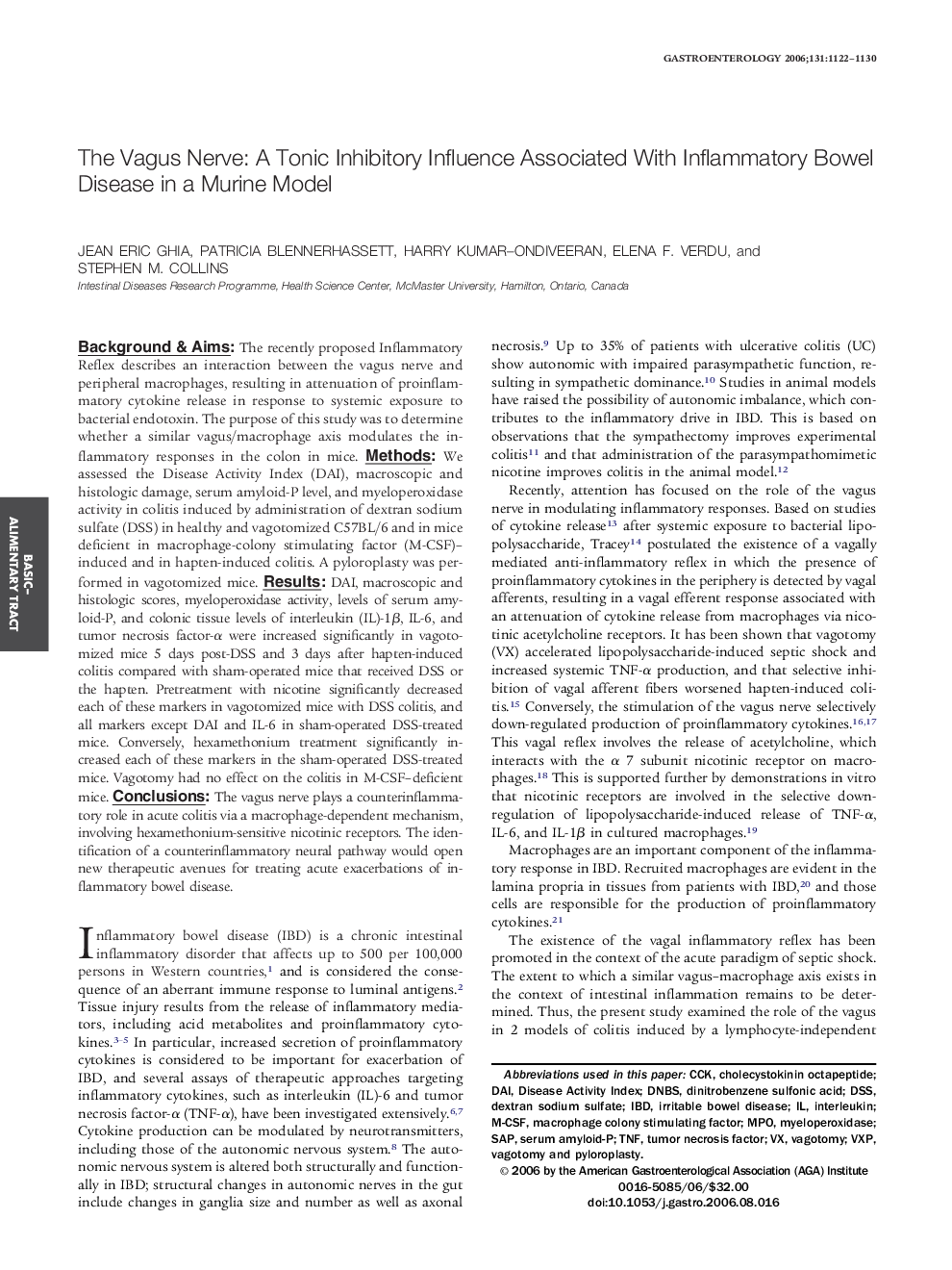| Article ID | Journal | Published Year | Pages | File Type |
|---|---|---|---|---|
| 3296947 | Gastroenterology | 2006 | 9 Pages |
Background & Aims: The recently proposed Inflammatory Reflex describes an interaction between the vagus nerve and peripheral macrophages, resulting in attenuation of proinflammatory cytokine release in response to systemic exposure to bacterial endotoxin. The purpose of this study was to determine whether a similar vagus/macrophage axis modulates the inflammatory responses in the colon in mice. Methods: We assessed the Disease Activity Index (DAI), macroscopic and histologic damage, serum amyloid-P level, and myeloperoxidase activity in colitis induced by administration of dextran sodium sulfate (DSS) in healthy and vagotomized C57BL/6 and in mice deficient in macrophage-colony stimulating factor (M-CSF)–induced and in hapten-induced colitis. A pyloroplasty was performed in vagotomized mice. Results: DAI, macroscopic and histologic scores, myeloperoxidase activity, levels of serum amyloid-P, and colonic tissue levels of interleukin (IL)-1β, IL-6, and tumor necrosis factor-α were increased significantly in vagotomized mice 5 days post-DSS and 3 days after hapten-induced colitis compared with sham-operated mice that received DSS or the hapten. Pretreatment with nicotine significantly decreased each of these markers in vagotomized mice with DSS colitis, and all markers except DAI and IL-6 in sham-operated DSS-treated mice. Conversely, hexamethonium treatment significantly increased each of these markers in the sham-operated DSS-treated mice. Vagotomy had no effect on the colitis in M-CSF–deficient mice. Conclusions: The vagus nerve plays a counterinflammatory role in acute colitis via a macrophage-dependent mechanism, involving hexamethonium-sensitive nicotinic receptors. The identification of a counterinflammatory neural pathway would open new therapeutic avenues for treating acute exacerbations of inflammatory bowel disease.
